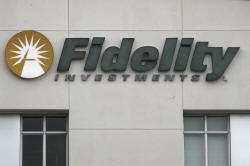|
Fidelity seeks U.S.
approval for new type of ETF: filing
 Send a link to a friend
Send a link to a friend
 [August 12, 2016]
By Trevor Hunnicutt [August 12, 2016]
By Trevor Hunnicutt
(Reuters) - Fidelity Investments is
seeking U.S. approval to offer a new type of actively managed
exchange-traded fund, a regulatory filing on Thursday showed, as the
fund company seeks to regain market share lost to low-cost index
funds.
Many ETFs are set up to track market indexes without the need for
constant supervision by an fund manager.
Fidelity had dominated the U.S. mutual fund industry until the
dot-com bubble burst in the early 2000s. It has been forced to adapt
to growing competition from index funds by putting more emphasis on
its brokerage business and products other than U.S. stock mutual
funds.
The Boston-based company asked the U.S. Securities and Exchange
Commission to let it offer an Exchange-Traded Active Fund, or ETAF,
which would trade and price throughout the day and offer more tax
benefits than mutual funds.
The fund managers would not have to disclose for 30 days what they
buy or sell, Fidelity proposed in the filing. Actively managed ETFs
are required to make such disclosures daily.

Industry analysts have said that delayed disclosure would encourage
active fund managers to offer more "non-transparent" ETFs that would
give them a competitive advantage.
Boston-based Eaton Vance Corp in February launched NextShares, an
exchange-traded product with delayed disclosures, as an alternative
to mutual funds, but the product's backers are still working to win
over converts.
In a statement, Fidelity cautioned that it might take some time to
win approval for such funds. Some proposals for active ETFs and
other similar products have languished without signs of progress for
years.
[to top of second column] |

A Fidelity Investments store logo is pictured on a building in Boca
Raton, Florida March 19, 2016. REUTERS/Carlo Allegri - RTSB9TE

Fidelity's filing underscores the growing urgency with which
established investment managers are adapting to the fast-growing ETF
industry, which has been gaining share from mutual funds, Todd
Rosenbluth, director of ETF and mutual fund research at S&P Global
Market Intelligence, said in an email.
Index-tracking U.S. stock funds took in $1.2 trillion from 2007 to 2015, while
actively managed U.S. stock funds recorded $835 billion in withdrawals during
that period, according to the Investment Company Institute, a fund trade group.
Last year, the 25 percent of equity funds which charged the least in fees
managed nearly 75 percent of the industry's assets, the group's data shows.
Fidelity's new funds would be structured in some ways like a closed-end fund.
They would be traded like stocks, at prices close to their net asset value, the
company said.
(Reporting by Trevor Hunnicutt; Editing by Chizu Nomiyama and Richard Chang)
[© 2016 Thomson Reuters. All rights
reserved.] Copyright 2016 Reuters. All rights reserved. This material may not be published,
broadcast, rewritten or redistributed.

|